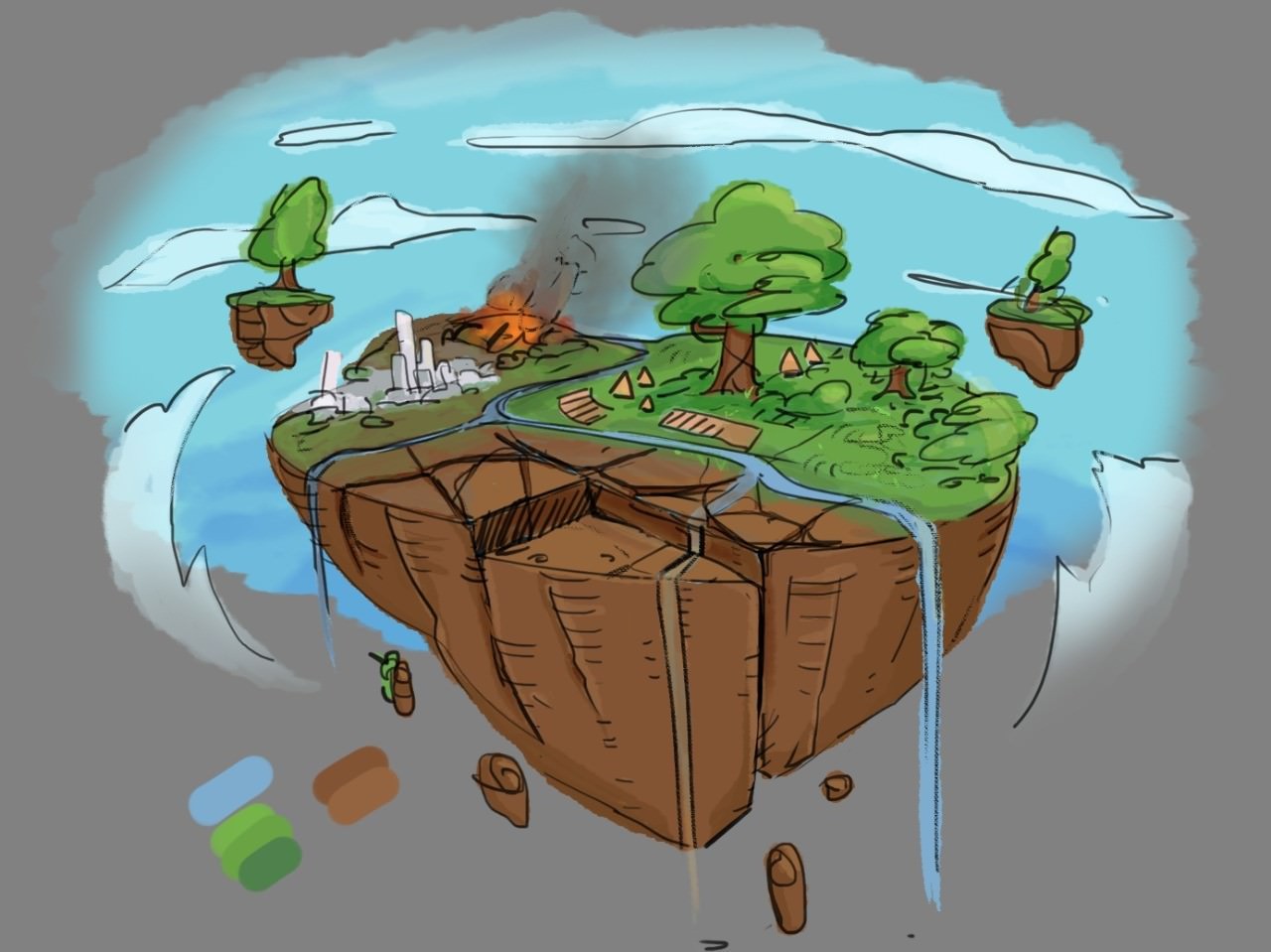Due to Brazil's global importance to the climate as the world's most biodiverse and fifth largest country, there is an urgent need to strengthen agency and engagement in the climate cause and environmental issues among Brazilian youth.
European youth are often framed as global frontrunners in climate action, but to halt global warming, transformation is needed on a massive scale. Brazilian youth have scale and impact as the world´s most biodiverse country but, for many valid reasons, lack agency compared to their European peers. The project Politics of Nature // The Mobile Game proposes to address these gaps with a constructive approach aiming to engage, inspire and connect for action.
The project connects Brazilian and European youth in the fight against climate change through a digital version of the game Politics of Nature. This mobile game "PoN! – A Ilha dos Tatus” is the result of a large collaboration including Brazilian youth climate movements, game developers, EU cultural institutes, NGOs, students, municipalities, and experts.
Engaging Brazilian youth in climate action
With the current background of climate crisis, pandemic and political polarization, young Brazilians represent the best hope for change.
The PoN mobile game, developed by Brazilian independent game studio Ilex Games, is a fun and thought provoking collaobrative game for 12 to 15 year-olds based on profound research and philosophy, but duly simplified. This project builds on a co-creative Brazilian/European process which started in 2018 and involves youth climate NGOs Engajamundo and Fridays For Future Brazil (FFF).
With the Politics of Nature Mobile Game, its pedagogical toolkit and a programme of physical/hybrid socio-educational events, the project supports youth in expressing their full potential for local change through new partnerships (UN SDGs 13 and 17). This was achieved by
- developing and testing an open-source mobile game in a collaborative process involving youth from the periphery of the pilot city of Santos;
- promoting the game accompanied by a pedagogical toolkit for the target group via the EUNIC members´ network of 500 schools, an online campaign, and partner networks;
- connecting target group locally via events in Brasilia, São Paulo and Rio de Janeiro for and with Brazilian youth, organized in a fair and inclusive collaboration - and via online events involving Portuguese youth.
After being shortlisted in July 2021, the project partners in the second step reworked their initial proposal, strengthened their partnership and already piloted some elements, by - among other things - conducting market research, publishing a call for Brazilian gaming developers, and organising workshops, meetings and gaming sessions.
Being part of step 2 and being able to participate in the activities led me to have a better understanding of the project and a better understanding of my own work as a producer, that could lead me to contribute even more to the project. More than that, now I have a better understanding of how to work with so many different partners and people, from Brazil and abroad.
Antonio Carlos Sandoval, producer
PoN: A Ilha dos Tatus
During the third step, which is the implementation as pilot project of European Spaces of Culture, the PoN mobile game was officially launched on 31 August, with various activities organised around and following the launch.
Prior to the launch, in the late stages of the game development phase, the project team has participated in several important external events, such as at the BIG Festival, the largest festival of the gaming industry in Latin America. There, the game was presented to an audience of 30,000 people, giving numerous gaming enthusiasts the opportunity to get a feel of the game and its message.
PoN was also part of the cultural programme promoted by the city of Santos as part of the 14th Annual Conference of the Unesco Creative Cities Network, which took place in July 2022. During the conference, member cities collectively reflected on sustainable development strategies and initiatives, in addition to debating social inequality. PoN was given the stage through the developers and partners presenting the game as innovative practice to address sustainability.
It's not just a game, it's a cause.
Louise Ribeiro, Instituto Querô intern and testing mediator
To promote the huge inclusivity and diversity of Brazilian youth, the testing of the game was being mediated by students from Instituto Querô, a non-profit institution that seeks to promote access to art and culture and stimulate the human and citizen transformation of low-income young people and residents of communities through training and audiovisual production, aiming to collaborate with the reduction of social inequality. The institute has put forward its former students as interns for the project. In the words of Louise Ribeiro, one of the interns mediating the testing: “In addition to it being a first job opportunity, it is a nice action. It's not just a game, it's a cause.”
Embedding the game in education
PoN has designed a pedagogical toolkit to incorporate play into engaging work- shops for teachers and educators in schools and non-formal education. With its accessible language and structure, it provides a simple way to dive into complex topics and to initiate a hands-on discussion in a meaningful way. Already, several educational boards at city level in Brazil have indicated to incorporate the game and the toolkit in their local school curriculums.



